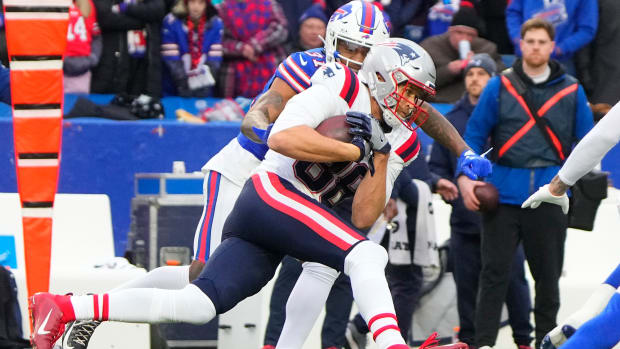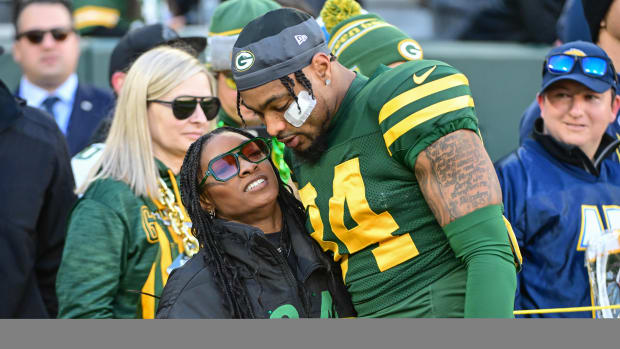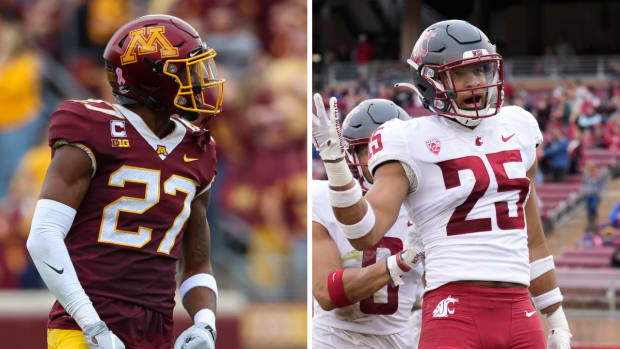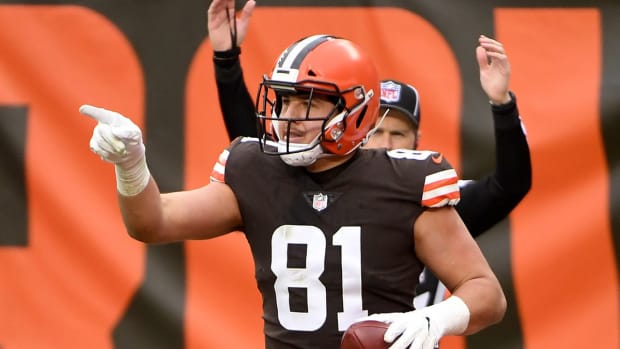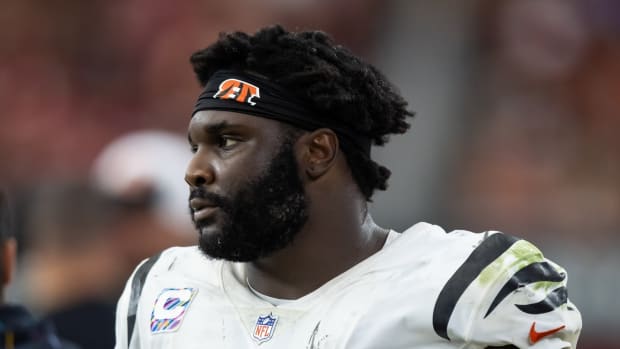Interim Coach Steve Wilks Deserves a Chance to Keep the Panthers Job
Most NFL head coaches know that if they’re lucky enough to get a second (and likely final) chance at their dream job, the deck had better be stacked in their favor.
That’s not exactly how it went for Panthers interim coach Steve Wilks, who, after Sunday’s 30–24 win over the Seahawks (and the 49ers’ Brock Purdy–inspired blowout of the Buccaneers), has Carolina sitting at 5–8 with a 22% chance of reaching the playoffs, according to FiveThirtyEight. He moved into the big chair from the position of secondary coach after the owner fired head coach Matt Rhule and defensive coordinator Phil Snow after five weeks.
Then, the franchise’s best player, Christian McCaffrey, got traded to the 49ers. Another receiver, Robbie Anderson, got traded to the Cardinals.

Interim coaches often have the deck stacked against them. Wilks certainly did not take over an ideal situation.
Katie Stratman/USA TODAY Sports
Wilks’s quarterbacks were P.J. Walker, Jacob Eason, Baker Mayfield and Sam Darnold, the last of whom he was lucky to have. Mayfield received his release and was off to the Rams. In one of his first games, he nearly beat the division-rival Falcons, but the would-be game-winning wide receiver, D.J. Moore, pulled his helmet off in the end zone and knocked the kicker out of range on the extra point because of a penalty, then the Panthers lost in overtime.
Despite all this, his team beat the Buccaneers, the Falcons in a rematch, the Broncos and Seahawks, a team that entered the week in one of the NFC’s final playoff seeds. Geno Smith, one of the most successful down-by-down quarterbacks in the NFL in terms of efficiency, threw two picks and was sacked three times Sunday. With Kenneth Walker III out, the Seahawks were held to 2.9 yards per carry from lead back Travis Homer.
Wilks, if you’ll remember, was last seen as a full-time head coach being absolutely hosed by the then directionless (still directionless?) Cardinals, piloting their 3–13 season in 2018. He was hired after the end of the Bruce Arians regime, stuck with Sam Bradford and Mike Glennon as his veteran quarterbacks and forced to develop Josh Rosen, a quarterback GM Steve Keim believed in so much that he drafted Rosen’s replacement, Kyler Murray, with the No. 1 pick the following year (and somehow escaped penalty from his bosses for it). The circumstances he had to operate in were poor enough that he confidently joined the Brian Flores lawsuit, alleging that the Cardinals installed him as nothing more than a bridge coach meant to crash and burn.
Despite being the worst team in the NFL that year, the Cardinals still had the No. 11 defense in net yards per passing attempt allowed. They were a top-15 overall passing defense.
To say that Wilks deserves a crack at the Panthers’ full-time job, even if this miniature run toward the top of a horrible division sputters, is putting it lightly. He didn’t deserve to be scapegoated out of his last job. He didn’t deserve to have his second chance come amid an absolute hurricane of postfiring teardown chaos. In succeeding despite all of this, with four wins in the team’s last seven games, isn’t he displaying one of the best qualities you’d want from someone to lead your NFL team?
Ask anyone who has ever held the position and they’ll tell you: Coaching isn’t fair. Coaching is a tightrope walk over a sea of political, administrative, egoistic and schematic madness. It is a constant grab for power, reason and authority. At a moment’s notice, any progress can be wiped away by an owner who decides to listen to whomever happened to be in his foursome at Augusta the previous weekend. The good coaches don’t care and come to work, anyway. The good ones treat the bad jobs like the best jobs.
NFL owners often dismiss interim coaches, and for good reason. Usually, coaches get fired in the middle of the season because the situation cannot improve. As we’ve mentioned in this space plenty of times, the simple absence of a coach who performed badly enough to get fired in-season often yields an emotional boost that cannot be replicated the following season. The next year normally turns out to be just as bad, or nearly as bad as the one that caused the firing in the first place.
But with Wilks, the entire operation kept getting beaten down. This hasn’t been like Indianapolis, where Jeff Saturday got to swoop in and start a better quarterback, whom the owner had benched in the first place. It’s not like Jacksonville, where Urban Meyer left and everyone could finally stop checking to see whether he was in the room before laughing. Wilks lost talent. He should have lost the benefit of the doubt from a locker room that his regime was serious about salvaging the season.
And somewhere in that mess, he rattled off a few wins that no one expected him to. We’ve never seen Wilks with the deck stacked in his favor. Not even close. But if this is how he handles the worst of it, wouldn’t he be worth checking out during the good times?

































